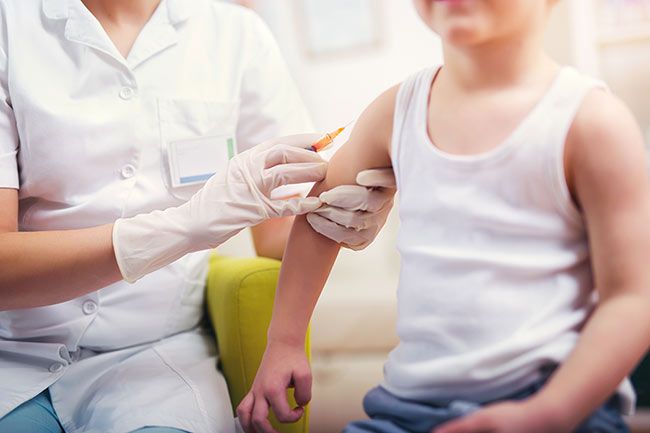The number of measles cases in Europe has risen to 41,000 - and now health officials are warning it could cause an outbreak in the UK. The epidemic is believed to have been caused by poor vaccination rates, with only 91.9 per cent of children in the UK vaccinated against measles in 2015 and 2016, a drop from 94.3 per cent in 2013 and 2014. The World Health Organisation says people's fear of vaccines may be to blame, leaving many young children unprotected. Ensure your children are protected with our guide to what measles is, the symptoms of the infection and how to recognise a measles rash.
What is measles?
Measles is a highly infectious viral illness that can lead to serious complications. Anyone can get measles if they haven't been vaccinated or they haven't had it before, with young children most likely to get it.
MORE: See the latest health stories here
What are the symptoms of measles?
According to the NHS, the initial symptoms of measles develop around ten days after you're infected. The main symptoms typically include:
- Cold-like symptoms, such as sneezing, a runny nose and cough
- Sore, red eyes that may be sensitive to light
- A high temperature which may reach around 40⁰C
- Small greyish-white spots on the inside of the cheeks
- A red-brown blotchy rash will typically appear a few days later. It usually starts on the head or upper neck before spreading to the rest of the body.
What is the treatment for measles?
The following treatments are recommended to ease the symptoms of measles and prevent spreading the infection, such as:
- Taking paracetamol or ibuprofen to relieve fever and aches or pains
- Drinking plenty of water
- Keeping curtains closed to reduce light sensitivity
- Using damp cotton wool to clean the eyes
- Staying off school or work for at least four days from when the rash first appears
STORY: What is pneumonia? The signs and symptoms of the lung infection
How can measles be prevented?
The most effective way of preventing measles is by having the measles, mumps and rubella (MMR) vaccine. This is given in two doses for children, typically when they are around 13 months old, and a second dose before they start school. Adults and older children can be vaccinated at any age if they haven't received it before.









